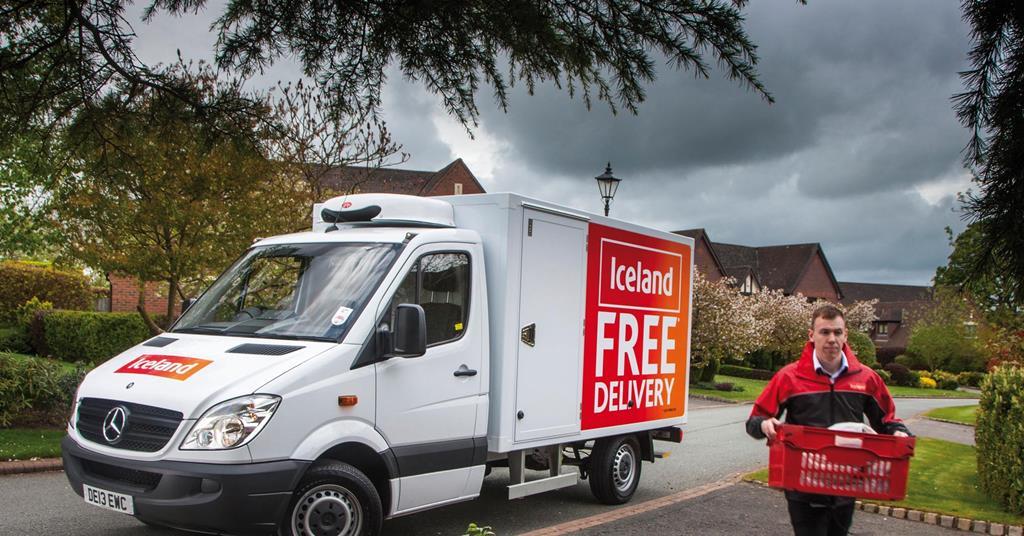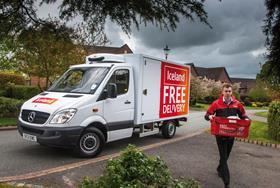Why – and how – does Iceland still offer free delivery while rivals have stopped? | Comment & Opinion


Delivery charges were once seen as a big deterrent to online grocery shopping, forcing supermarkets to bear the cost and creating a barrier to profitability.
Not anymore. In the online shopping boom of the past 12 months, retailers have been cautiously changing their fee structure. Tesco has introduced a flat £4.50 delivery charge, Asda has raised its delivery charge ceiling from £6 to £7, and others have also increased existing charges. As revealed by The Grocer last week, even Waitrose – whose customers may feel their overall bill warrants the odd VIP free perk – has introduced charges in some locations.
There is one exception to this trend: Iceland, with its free delivery of baskets over £35. Throughout the pandemic it has not only retained the offer but done so while dramatically increasing its online capacity – by 300% in 12 months, to a potential 750,000 orders a week, Iceland MD Richard Walker said in September last year.
So why – and how – does Iceland still offer free delivery, while others evidently find it unsustainable? You might argue, after all, that Iceland customers are not expecting the red carpet, just good-value food, with nothing thrown in nor taken away.
Speaking to The Grocer after we revealed this week Iceland was rolling out same-day delivery nationwide, David Devany, the supermarket’s chief customer & digital offer, rejects the above logic. Instead, the low spending-power of Iceland’s customers is exactly what makes free delivery such an important part of the online business it has worked hard to grow, he says. “Our customers are very price-sensitive and making their weekly grocery budget go further is really important to them, so not having to spend money on delivery can equate to an extra meal for the family.
“£4.50 at Iceland goes a long way. We know free delivery is a real draw for our customers because of this. Other grocery retailers will have a different set of challenges.”
There is another potential benefit of offering free delivery, aside from drawing in customers in the first place. Go to the checkout on Iceland’s website with a £26 basket and you will see what it is: “Free delivery in £9,” it will remind you.
Could rivals be making a mistake, losing not only the attraction of free delivery, but the spending threshold customers must reach to earn it?
“Potentially,” says Devany, but he denies this is important in Iceland’s strategy. “We know that many customers using our online shopping service spend significantly more than £35 each week, so the ‘free delivery’ threshold is less of a concern in terms of increasing basket spend,” he says.
Of course, there is the small question of profit, and whether there is any on a £35 basket of Iceland shopping delivered for free. It is noteworthy that Devany does not directly answer the question. “Having a continually growing, profitable online business is a challenge for any retailer, especially those in the grocery sector, but we have developed a model which ensures our online business is profitable,” he says.
If Iceland’s online business is profitable overall, it has been made so by scale, and that has been achieved emphatically through store picking rather than customer fulfilment centres. While the likes of Asda and Sainsbury’s have announced plans to scrap CFCs during the pandemic, Iceland never really went there – it still has only two dark stores, one in Hyde, Greater Manchester, the other in Edinburgh. Compare that to its network of some 1,000 stores.
Speaking last September, Walker also summed up with characteristic pithiness why bricks & mortar grocers are finding store-pick more profitable than CFCs as more people shop online. “On average the customers live about three miles from [our shops] and therefore our stem mileage is that much shorter, and that enables us to maintain profitability for online,” he said. “So, I say we do have centralised pick centres, but they’re called shops and we’ve got 1,000 of them.”
On the subject of online capacity growth, when Iceland talks numbers – such as 750,000 deliveries a week – it means potential, not actual, business. With such a big estate of “centralised pick centres” at its disposal, retaining the appeal of free delivery suddenly makes enormous sense, even if there were to be a loss on a £35 basket.
Building capacity to this level has required investment. “Installing online into a store certainly isn’t a simple measure; a huge number of things need to be considered and properly implemented, such as staffing and additional delivery vans,” says Devany.
Now Iceland must use that capacity. Iceland.com is a business looking at a huge opportunity, not one in maturity.
The good news for Iceland’s customers is it means they’re unlikely to be charged for delivery anytime soon.
“Making online grocery shopping available to as many people as possible will always be a priority, and a free delivery option is key to that,” says Devany. “We’re committed to providing free delivery on baskets over £35 for the foreseeable future.”
Source: www.thegrocer.co.uk

